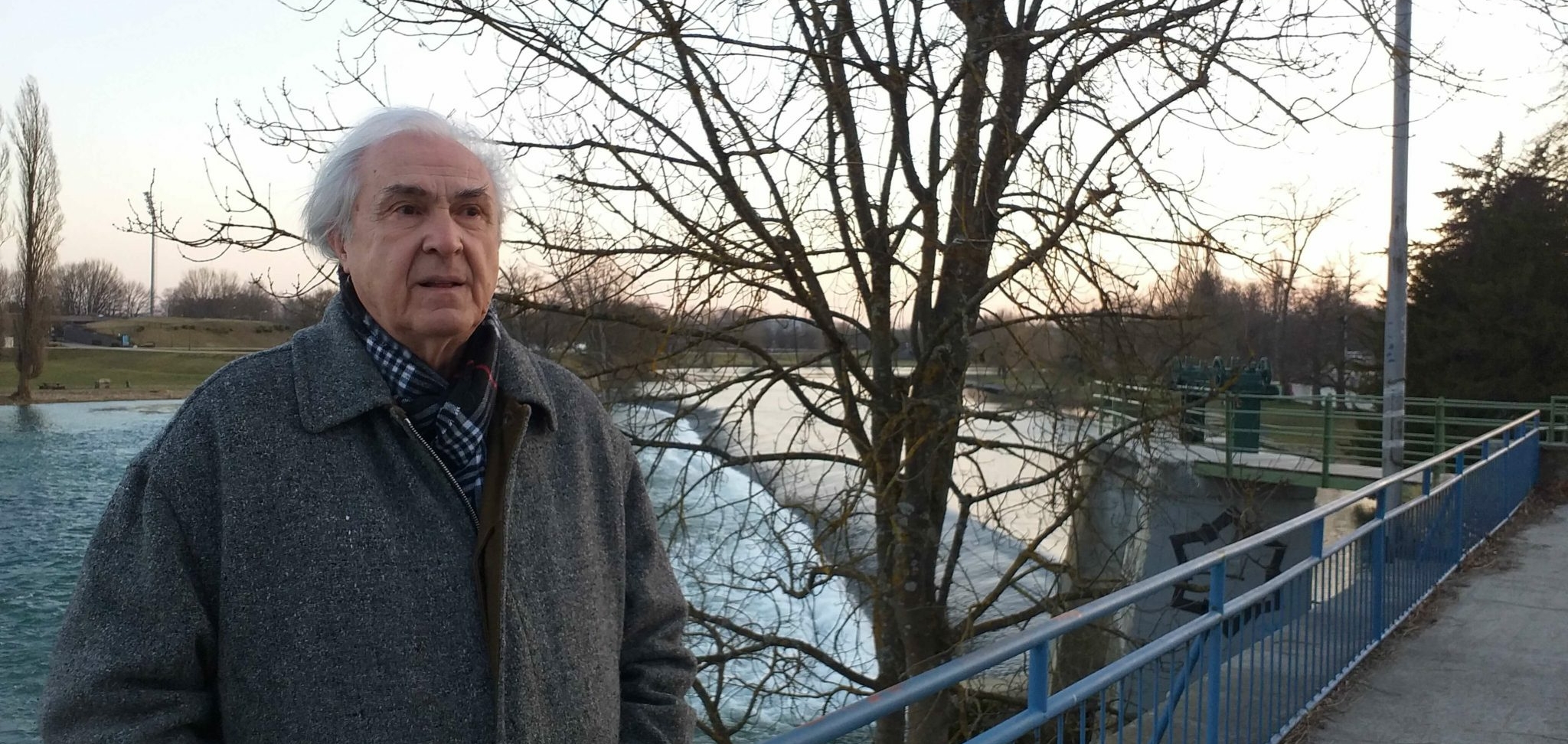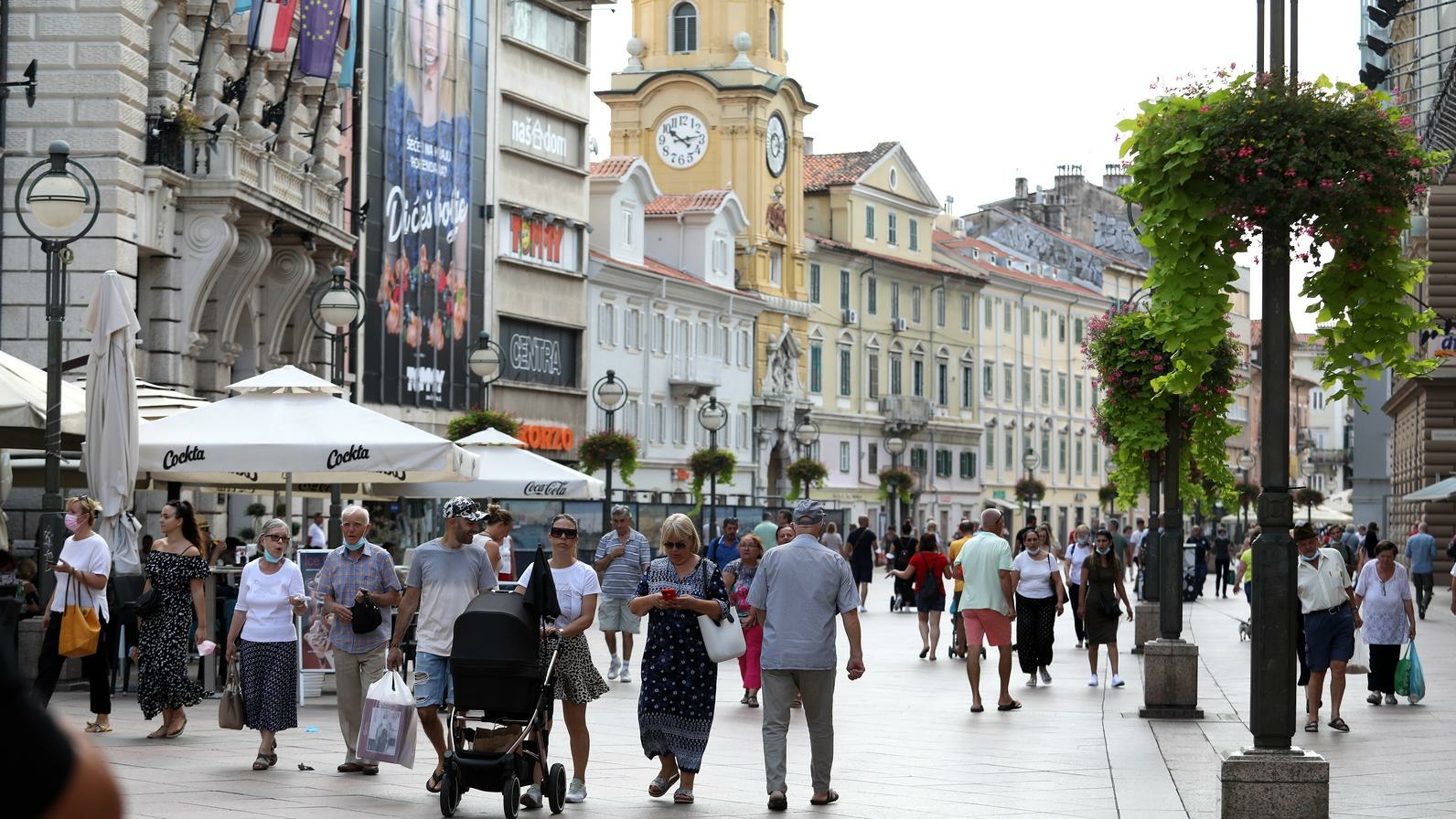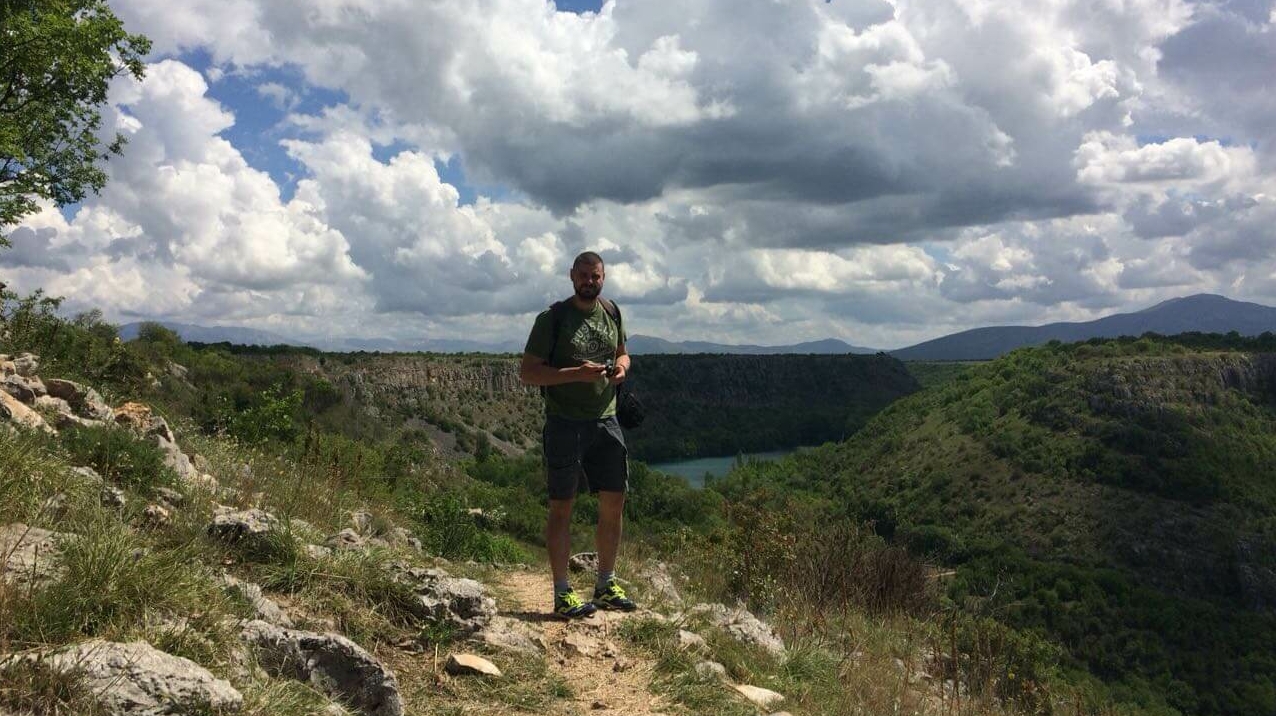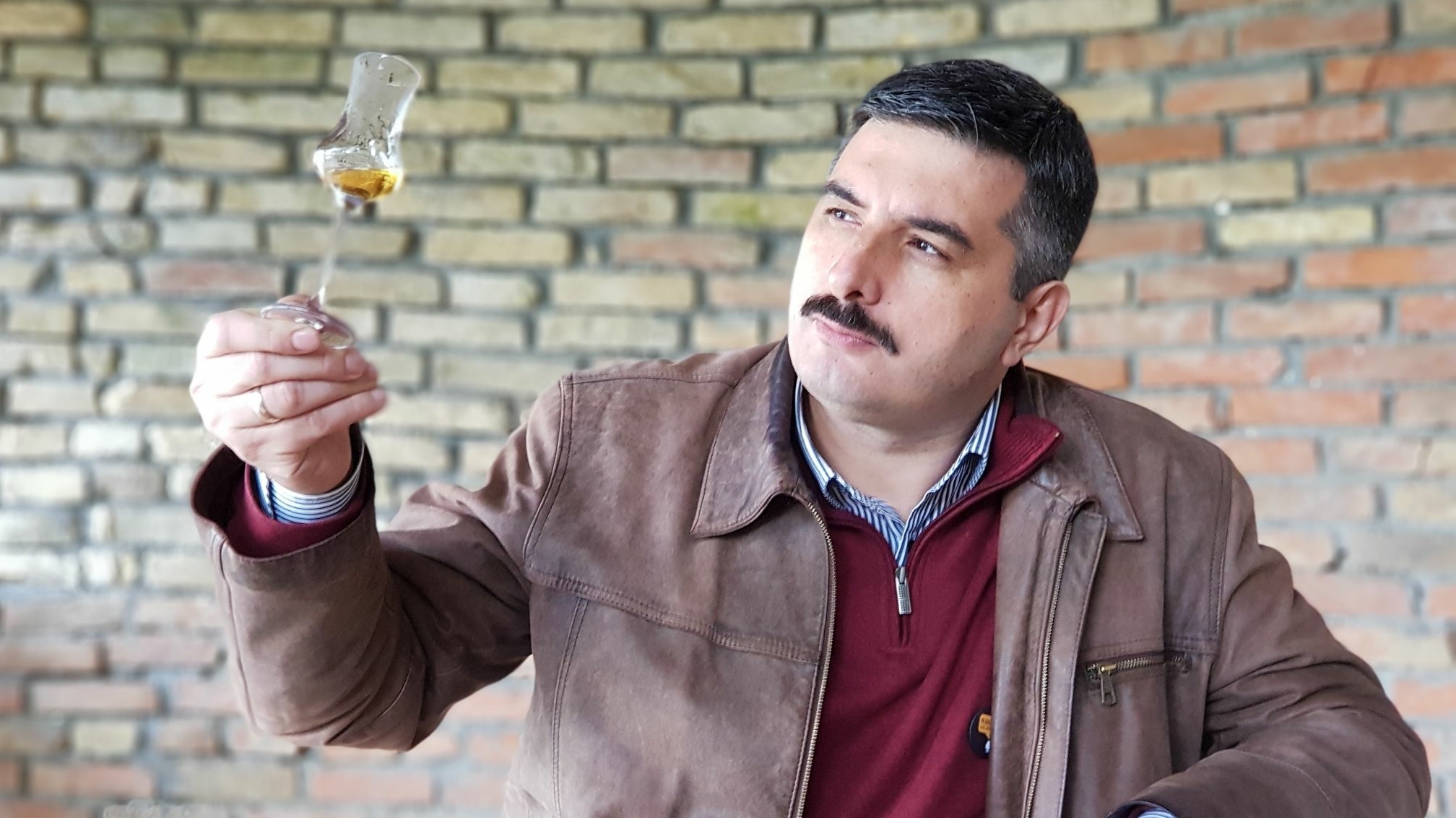“The social standing of the family I come from has never influenced my life. Of course, over time I learned a lot about it, and what I learned was not unpleasant. However, that hasn’t influenced my behavior or my life philosophy,” says retired civil engineer from Karlovac Milutin Ilić, a descendant of one of the wealthiest and most powerful Yugoslav families of the interwar period, which owned the factories Vuna and Tekstilna industrija in Rakovac and Turanj. Together we dive into the memories of the once most powerful and later persecuted and forgotten family.
We walk from Vrbanić Park to the waterfall on Korana. He stops and points from the park to Vunsko polje, the Sports Hall Mladost and the spot of the former Hotel Korana. “This all belonged to my family – to our factory, to be exact,” he says. Today, this strip of land along Korana is the most valuable land in Karlovac and the living room of Karlovac natives and excursionists. Milutin’s neighbors, friends and acquaintances probably have no idea he is the scion of one of the most prominent Yugoslav “dynasties”.
Milutin is the son of Siniša Ilić, whose father Svetozar was the manager of a factory owned by the concern Ilić and sons from Vlasotince near Leskovac. The economic importance and influence of this family during the time of the first Yugoslav state is probably comparable to the importance and influence of the Todorić family in modern Croatia.
An illustrious family that had a king as a best man
The progenitor of the inluential Ilić family is Kosta Ilić, called “Mumdžija” because he had learned the trade of making soaps from fat. He became an independent tradesman, expanded his business into commerce and banking and gained political standing as a participant in the liberation of Vlasotince from Turkish rule. He enlarged his fortune by buying abandoned Turkish estates, and at the turn of the century opened a passementerie workshop, thus entering the textile industry, which the family would become known for. His sons entered the family business and continued developing it successfully. Kosta Ilić had seven children, one of whom was the great-grandfather of our interviewee and the youngest of whom was Vlada Ilić – according to many, the most important Belgrade mayor. He was the first educated textile industrialist in Serbia, and he started his business with a loan from the Serbian Bank in Zagreb. During his tenure as mayor, from 1935 to 1939, he reformed the city management and stabilized the finances, ensured cheaper electrical energy for the development of trades, led a large campaign to build workers’ housing and other social infrastructure, such as schools, kindergartens and healthcare facilities. During his term, the suspension bridge on the Sava, the Pančevo Bridge, the road-rail bridge, the new railroad, the tram line to Zemun and the Belgrade Fair were built. The foundation stone of the Church of Saint Sava was laid and numerous facilities were built: the main post’s building, the monument to Vuk Stefanović Karadžić, the city polyclinic, the institute for disinfection, the city hospital, the polyclinic for skin and venereal diseases, the children’s home and the University Children’s Clinic. The filling in of the banks of the Sava to expand the city began, which was the beginning of today’s Novi Beograd, and the zoo was opened. The best man at his wedding was King Aleksandar I Karađorđević, which tells us how influential he was. This year is the 140th anniversary of his birth and the 70th anniversary of his death, and he died stigmatized as an enemy of the people and after serving a prison sentence. The communists condemned him for signing a public call to cooperate with the occupiers and for keeping his factories operating during the war, and with profit. In recent years, his judicial, historiographical and cultural rehabilitation has been taking place in Serbia. A monograph by Saša Z. Stanković, Vlada Ilić – Belgrade’s First Modern Mayor, was published, and a radio-drama by Maša Pevac, From Mayor to People’s Enemy, was produced.
Vlada Ilić did not have any descendants, while his brother Mihajlo had a large family from which the aforementioned Svetozar, who came to Karlovac, comes. He was succeeded by his son Siniša and then grandson Milutin, to whom we talk on the Korana.
The revolution takes everything
The communists condemned the Ilić family for running their factories with profit during the war in Karlovac as well, and they used that as the justification for confiscating their property. Historian Nikola Perković wrote a scientific article about the confiscation of the textile industry in Karlovac after the Second World War in the Journal of Contemporary History two years ago. “For the bearers of the socialist revolution, any company that was undamaged in the war and operated with a profit stirred suspicion of maintaining friendly and business relationships with the Ustasha government,” writes Perković.
He adds that at the beginning of the war, more goods were sold to merchants than to state institutions, and from 1942 to 1945, the value of the goods sold to the government exceeded that of those sold to merchants. That was reason enough for the communists to confiscate Vlada Ilić’s entire property in Karlovac, writes Perković. “For whom could Karlovac factories operate from 1941 to 1945 than for the Independent State of Croatia? How could this crime have been avoided?” asks Milutin rhetorically.
After the war, Svetozar and his wife emigrated to France, where they died and were buried. “He saw what happened to Vlado, who said he had no reason to run and then spent ten years in prison,” says Milutin. Svetozar maintained correspondence – mainly holiday greeting cards – with his son Siniša, who was a textile engineer and worked in the family factories until the war. After the war, Siniša continued working in his field and in education.
All paths lead to Karlovac
Until the 1850s, Karlovac was one of the richer cities of the south of Austro-Hungary due to the grain trade on the rivers. With the construction of railroads, its importance diminished and the city entered a thirty-year stagnation. The construction of the power plant in Ozalj marked the beginning of industrialization and gave Karlovac an advantage over other cities because it was supplied with cheap electricity. The city authorities offered free land to investors and waived local taxes. Meanwhile, the mass movement of rural populations to the city provided a cheap labor force, which also attracted investors, such as the Ilić family. They bought Slijepčević’s mill in Turanj in 1925 and a mill on the Korana waterfall in Rakovac in 1926 and founded two companies at those locations – Vuna and Tekstilne tvornice. Although separate, the two companies were connected through their production, management and ownership, and they employed 500 workers each. They produced men’s, women’s and children’s underwear, worker uniforms, all kinds of textiles, scarves, ribbons, woolen fabrics and blankets for the military, police, firefighters, hospitals…
“I first visited Karlovac in 1926 on a journey with my sister from Belgrade to Kranjska Gora. We stopped by in Karlovac to see what our father and uncle had bought. On this first encounter with the city, I said that, if I ever had to decide in which city to live, it would be Karlovac. And that came true,” Siniša Ilić said in an interview for Novi karlovački tjednik from July 30, 1991.
He died shortly after that interview, and Milutin says that the war that was just starting contributed to his death. “It reminded him of 1941. He was arrested then and spent over a year in prison. After that, he was expelled to Serbia with his wife and two children as a ‘Bulgarian citizen’ because he was born in Leskovac, which became Bulgarian territory in the Second World War. I am his third child. I was born in Belgrade just before the end of the war in 1945,” Milutin says and adds that in 1991, his father advised him not to go anywhere but to endure and stay in Karlovac during the last war. At the spot where the factory used to be, there is now a preserved turbine and a waterfall, the favorite swimming spot of generations of Karlovac citizens, including Milutin.
“When I swam there as a young man, I never even thought of the fact that the waterfall and the turbine once belonged to my family, nor did any of my friends ever mention it. I wasn’t interested in that at all, but was rather occupied with music, since I played the violin in the city’s symphony orchestra, basketball, since I played for the Željezničar basketball club, school and, of course, girls,” says Milutin.
Siniša confirmed all this in the interview given to the journalist of Novi karlovački tjednik Branka Dojčinović. “I didn’t talk to my children about what our family had before the war, so my son found out about the origin of the name of Vunsko polje, and therefore about his ‘bourgeois’ origins, from his high school teacher,” Siniša said.
Siniša married Mirjana Lovrić, daughter of Karlovac merchant Milutin Lovrić, after whom our interviewee is named. Lovrić and his brother Stanko were killed in the Jasenovac concentration camp, and were both recipients of Privrednik’s scholarship.
The restitution of property?
Since Vlada Ilić was stated as the majority owner of the concern and its factories, our interviewee explains, problems arose in the restitution of confiscated property in Croatia because the law does not acknowledge indirect descendants. Vlada, who did not have children, was “only” the brother of his great-grandfather Mihajlo. However, in Serbia the legal procedures for property restitution or compensation are still ongoing because Serbian law recognizes the rights of the members of the extended family. The property in question includes Vlada’s villa, which is now a hotel in Venizelosova Street in Belgrade.
“The confiscation after the war impacted all of the industry in former Yugoslavia, and therefore mine and my family’s as well. I have accepted that. And what do I expect from denationalization? For me and my wife, nothing, because we live off my pension, earned after the war. However, since laws have been enacted that make it possible, I ask for my property which was confiscated because of my children,” Siniša stated in 1991. He added: “You know, what I wanted to say first is we should stop with the denationalization – the worst evil is over. Many will regret getting back their property because they are no longer able to take care of it responsibly. Will they be able to manage it? I’ve heard some got their houses and apartments back in very bad condition. What are they supposed to do with that? The older generations have gotten used to this life and can’t change it anymore, and the younger are not used to hard work. And not one but many generations will pass before we get used to work again.”
We leave the turbine and the waterfall with Milutin, cross the road and come to the walking path by Vunsko polje. It is a place full of sports grounds and children’s playgrounds, full of people, young and old, especially in the summer. What once belonged to his family now belongs to everyone and is the inheritance of generations. Despite the injustice, we see no bitterness in Milutin, only pride. We photograph him proud and then say our goodbyes.
Translation from Croatian: Jelena Šimpraga
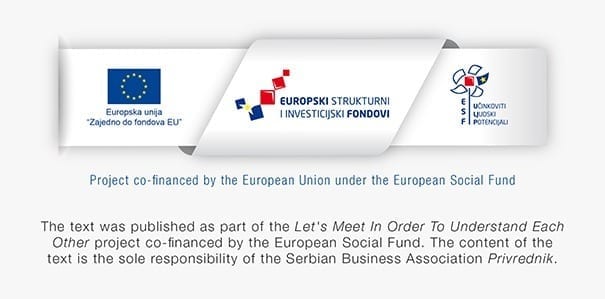
This post is also available in: Hrvatski

